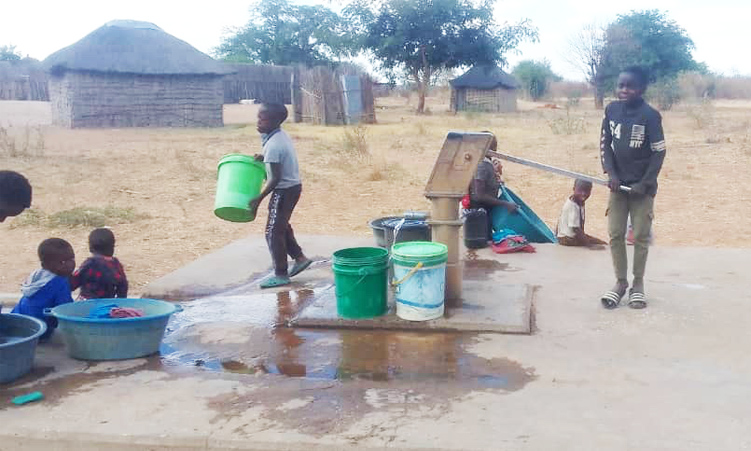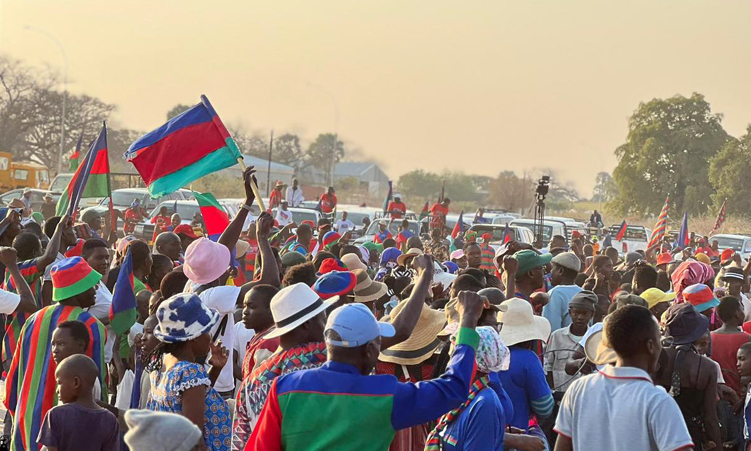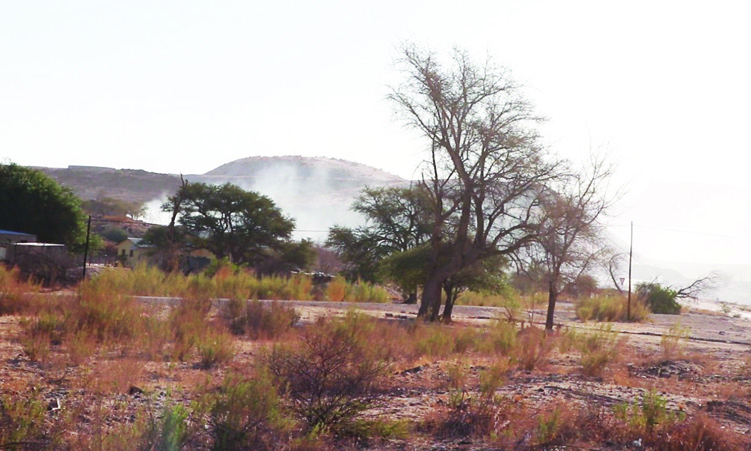Some villagers living in the Kongola constituency of the Zambezi region say they are forced to sell their livestock to fix government boreholes in order to consume water daily.
The Kongola constituency is plagued by old borehole infrastructure, which always breaks down, leaving villagers and their livestock without water.
Some villagers who spoke to The Namibian last week said they do not fully enjoy their right of access to clean water due to these ever-worsening conditions.
“If the boreholes break down, the rural water supply division fails to fix them on time. Last year at our village, we started to mobilise villagers to take turns and sell one small cow per household to pay the person to fix the borehole. So far, five households have sold their cattle to pay for the breakdowns.
owever, it does not last long, because the boreholes are old. If the boreholes break down again after our efforts to fix them, we have to travel about six kilometres to the river, and we do not always have transport.
“Imagine, we are already poor, and now we have to fix these boreholes from our pockets,” said Machinga Kulandata from Kongola village.
According to Kulandata, they have decided to mobilise more villagers to donate cattle in order to instal their own community borehole, seeing that the government is failing them.
Another affected villager from Shesheke village, Jane Lichisa (60), noted that they too have to donate about N$1 000 per household to fix the government borehole, otherwise they will be left without water for weeks.
“We wake up stressed about water every morning, and this has a bad effect on our health, especially for us who are already struggling with high blood pressure. Many old people have died as a result of these water crises on a daily basis. We now buy water from individuals just to have drinking water. The government has to come to our rescue and put in solar power boreholes, as we can no longer suffer like this in an independent country,” she said.
A villager from Kakuwa village, Caster Masole, noted that the borehole at their village has completely stopped working, leaving them to rely on the Rural water Supply Division’s pipeline, which has low water pressure.
“As a result, we only get water from that pipeline around 03h00, which is still very low. It takes about three hours to fill the containers with water. If you miss that opportunity to get water, you will be without water for the whole of the next day.
The dry season is upon us, so all water sources are dried up now. Our livestock travel over 100 kilometres to get water. The government should drill a new borehole for us or rehabilitate the old one,” he said.
Community activist Glen Shebo, who also raised concerns about the Kongola constituency’s water crisis, noted that the lack of access to clean water a direct impact on both the their villagers and livestock.
“People are forced to walk longer distances to the nearest water points, whereby they are exposed to attacks from wild animals. People are forced to draw water for domestic purposes from wells where the water isn’t fit for human consumption,” he said.
Kongola constituency councillor Bennety Busihu, when approached for a comment by The Namibian last week, acknowledged the water crisis in his constituency, saying it’s no secret that all constituencies in the country are encountering ageing water infrastructure. Hence the need for serious interventions from the government.
“Some of the boreholes in my constituency can no longer produce water that is for human consumption.
Therefore, they cannot be rehabilitated. Other boreholes, such as at Nakati, have rusted pipes that need to be replaced. However, the Rural Water Supply division has insufficient funds to carry out their duties. There are plans to rehabilitate the sheseke borehole when funds are available. The issue is receiving much-needed attention,” he said.
According to Busihu, as much as the government needs to instal and rehabilitate many boreholes in the Kongola constituency, community members should also stop vandalising boreholes once they are fixed.
Zambezi regional water supply division head Betty Muyatwa told The Namibian it is was only the Kongola constituency that is faced with ageing borehole infrastructure, but the whole region. As such, they are in the process of changing the technology from hand-pump boreholes to more efficient solar and diesel boreholes.
“In the meantime, we are faced with transport problems as we only have one vehicle to attend to all the repairs we have to carry out in the region. The car itself is old and is mostly in the garage rather than in the field. This then results in us not being able to fix the boreholes on time. The other challenge is that we do not have the necessary equipment to properly fix the boreholes, even if we attend to them. However, we are trying to attend to all the backlogs with the little resources we have,” she said.
Stay informed with The Namibian – your source for credible journalism. Get in-depth reporting and opinions for
only N$85 a month. Invest in journalism, invest in democracy –
Subscribe Now!






